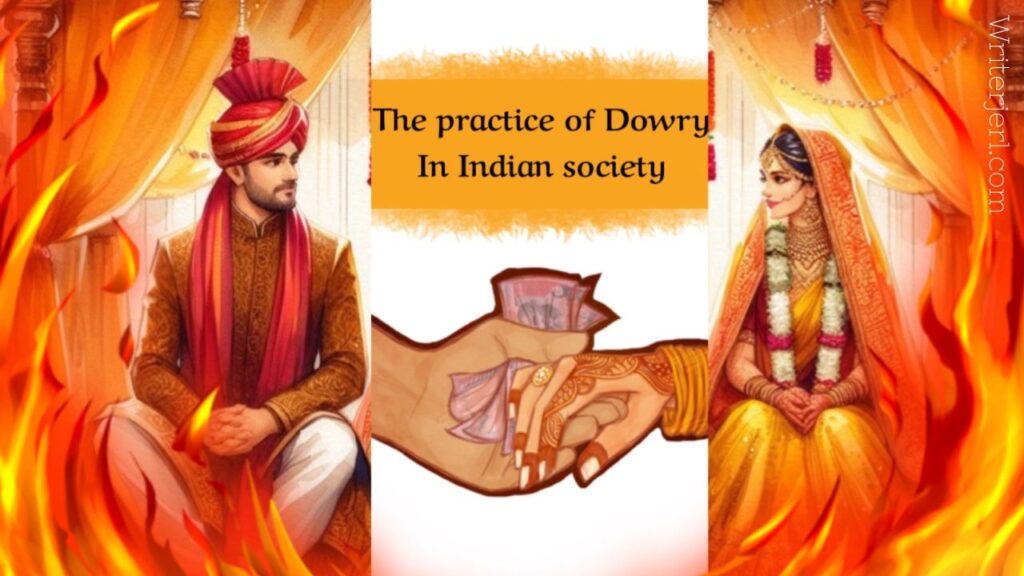
Fem anger-Unfold-025
A definition of dowry
Dowry refers to the transfer of wealth or assets from the bride’s family to the groom or his family upon marriage. This typically includes cash, jewellery, property or other valuable goods. The practice of dowry in Indian society is often seen as a social obligation or expectation. However, the practice has been widely condemned for perpetuating gender inequality, economic abuse, domestic violence and marital disagreement. In many countries, including India, laws have been passed to ban the practice of dowry, but its commonness continues in various forms even with legal restrictions. It is a stain on societal promoting greed, materialism and misogyny.
Significance of Indian culture
The practice of dowry holds significant cultural importance in Indian society. Historically, the exchange of dowry has been associated with enhancing the social status and prestige of both the bride and groom’s families. The size and quality of the dowry often symbolize the wealth and social standing of the bride’s family.
Dowry reflects and strengthens traditional gender roles and expectations within Indian society, where women are often viewed as economic burdens on their families. The expectation of dowry can perpetuate unequal power capacity and discrimination against women. For the bride, dowry is sometimes viewed as a means of providing economic security and support in her new married life. It is often considered a customary part of the marriage process.
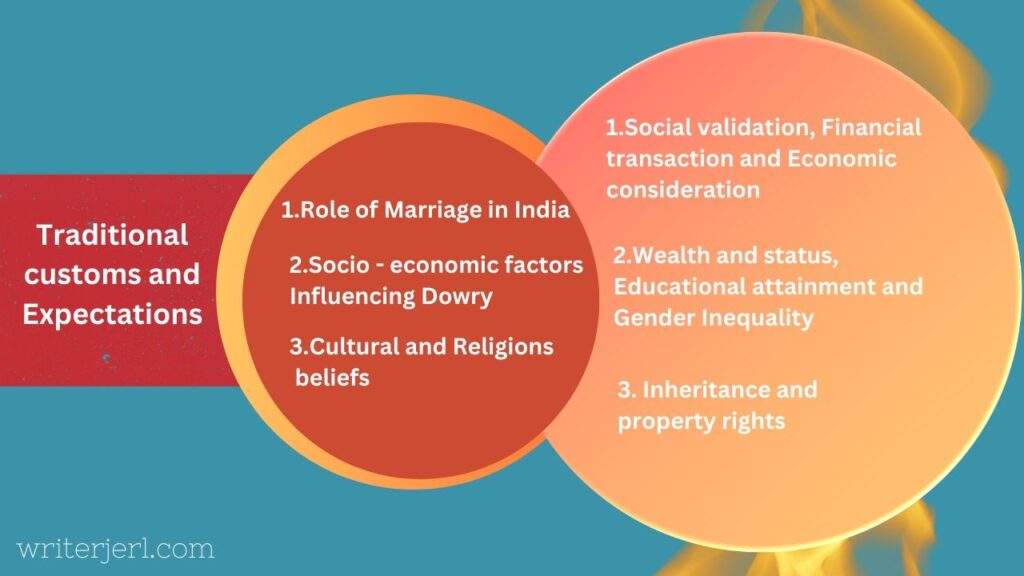
Traditional customs and expectations
- Role of dowry in marriage
- Social-economic factors influencing dowry
- Cultural and religious beliefs
Role of dowry in marriage
The practice of dowry in Indian society brings about gender dynamics that support the inferior social status of women. The role of dowry in marriage in India is multifaceted and deeply ingrained in societal norms and customs. Dowry is often seen as a way for families to validate the social status and prestige of the bride and groom. Social-economic factors influencing dowry
Social-economic factors influencing dowry
Families with higher wealth and social standing may expect larger dowries, which can include expensive gifts, cash, or property. on the other hand, families with lower socio-economic status may face pressure to provide dowry despite financial limits, leading to debt and hardship.
In some cases, higher levels of education among brides and their families are associated with lower dowry expectations, as educated women may have greater economic independence and bargaining power. Meanwhile, in communities where education levels are lower, dowry demands may be higher as a way for compensation.
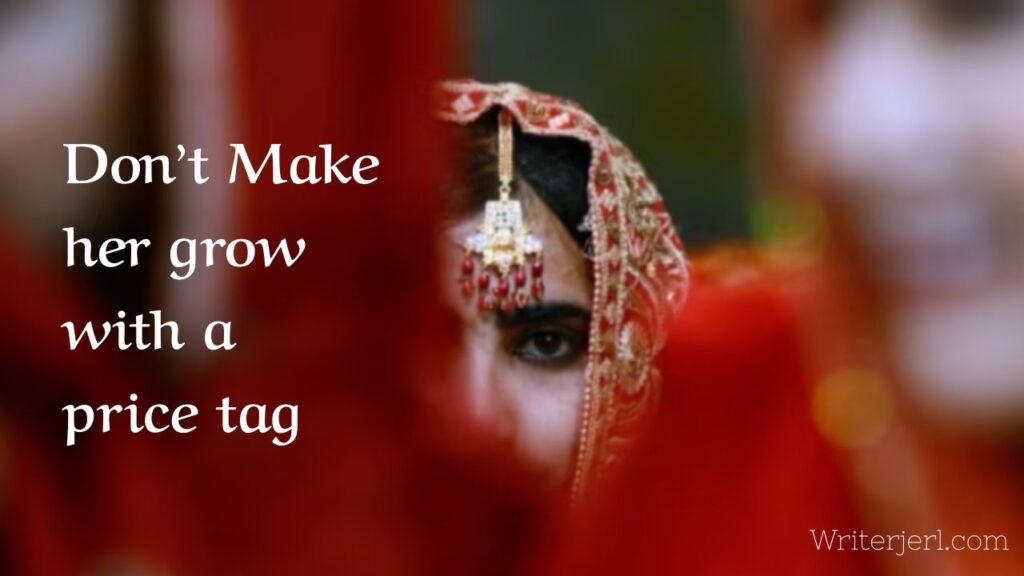
Cultural and religious beliefs
Dowry has been deep-rooted in Indian cultural norms and traditions for centuries. It is often considered a customary practice associated with marriage. Providing a plentiful dowry is often perceived as a demonstration of the bride’s family’s generosity, wealth, and social status, equally, failure to meet dowry expectations can lead to social dishonor, shame, and loss of face within the community.
This perspective can also be responsible for gender inequalities by highlighting the notion that women’s worth is tied to their material possessions or financial contributions. Families may feel compelled to participate in dowry exchanges due to fear of social acceptance.
Impact on women and families
The practice of dowry in Indian society has significant impacts on women and their families, affecting them in various ways
Financial burden
Providing dowry places a considerable financial burden on the bride’s family. This burden often includes the pressure to gather funds for cash, Jewelry, household items, and other assets demanded by the groom’s family. In many cases, families may face financial hardships to meet dowry expectations, leading to long term financial pull.
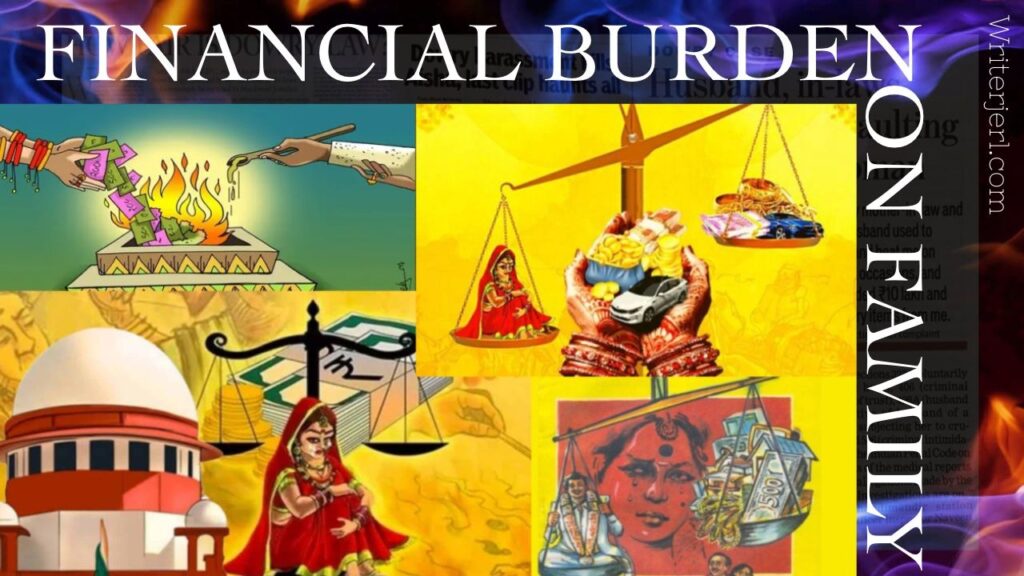
Gender inequality and discrimination
Dowry enables gender inequality by treating women as possessions whose value is determined by the dowry they bring into marriage. It is showing that the patriarchal norms that devalue women and position them as economic burdens on their families.
Psychological effects
Dowry-related pressures can have more psychological effects on women and their families. Women may experience stress, anxiety, and low self esteem due to the expectations placed on them to fulfill dowry demands. Families may also suffer from feelings of inadequacy, shame and guilt if they are unable to meet dowry expectations.
Dowry prohibition laws
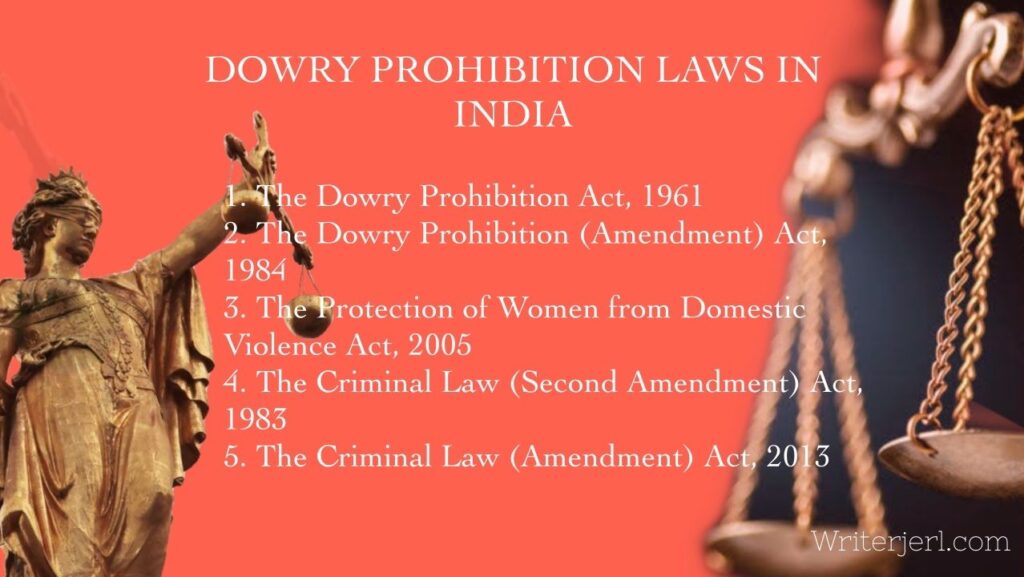
The dowry prohibition Act, 1961
This is the primary legislation governing dowry-related offences in India. The act prohibits the giving or taking of dowry directly or indirectly in connection with marriage. It also makes demanding dowry a punishable offence, with imprisonment for a term of up to 5 years and a fine.
The dowry prohibition (amendment) Act, 1984
This amendment strengthened the provisions of the dowry prohibition Act, making dowry-related offences non-bailable and cognisable. It also shifted the burden of proof to the accused, requiring them to prove their innocence in dowry-related cases.
The protection of women from domestic violence Act, 2005
While not specifically a dowry prohibition law. This legislation prides legal protection and recourse to women who are victims of domestic violence, including dowry harassment. It defines various forms of domestic violence, including physical, emotional, economic and verbal abuse, and provides for civil remedies such as protection orders, residence orders, and monetary relief.
The criminal Law (second Amendment) Act, 1983
This amendment introduced further provisions to address dowry-related offenses and violence against women. It widened the definition of dowry to include not only property, but also valuable security, gifts, or other property given or agreed to be given either directly or indirectly in connection with the marriage.
The criminal Law (Amendment) Act, 2013
This amendment introduced further provisions to address dowry-related offenses and violence against women. It widen the definition of dowry to include not only property, but also valuable security, gifts, or other property given or agreed to be given directly or indirectly in connection with the marriage.

Sum-up
The practice of dowry in Indian society-This old tradition fuels gender-based violence, financial mistreatment, and deep rooted misogyny, creates a culture where women are viewed as nothing more than assets to be traded. Demanding dowry is not just morally bankrupt: it’s a shameful act of gluttony and claim.
Those who demand dowry are essentially selling off their own integrity, reducing themselves to nothing more than opportunistic leeches feeding on the vulnerability and fear of others. It’s a cowardly display of insecurity and lack of character, for personal gain.
Despite the existence of these laws, dowry-related practices persist in India, and enforcement of the laws remains a challenge. By challenging the perception of women as economic burdens and promoting the idea of gender equity within families and society, cultural shifts can help reduce the occurrence of dowry-related practices and empower women to assert their rights and autonomy. Refusing to give dowry is not just a suggestion; it’s a demand for basic human decency.
work cited
The criminal Law (Amendment) Act, 2013
The dowry prohibition (amendment) Act, 1984